Be a changemaker!
Being at home doesn’t mean we can’t change the world…
There’s never been a better time to appreciate our amazing planet! And although we may be stuck indoors for the time-being, there are still plenty of things we can all do to stand up for the environment. We’ve rounded up 10 easy ways to take a stand for the planet…
1. Use less stuff!
Spending more time at home is a great opportunity to take note of how much stuff your family uses and throws away. Start keeping a diary of everything you’re using or buying over the next few days or weeks and see where you can make reductions. Instead of buying new paper, how about making your own for your art projects? And instead of buying plastic tubs of yogurt from the supermarket, why not make your own with our yummy yogurt recipe? There are lots of simple swaps you can get your family to do, each of which will help cut down on waste and make a big difference in the long run.
2. Make ‘turn off the light’ labels
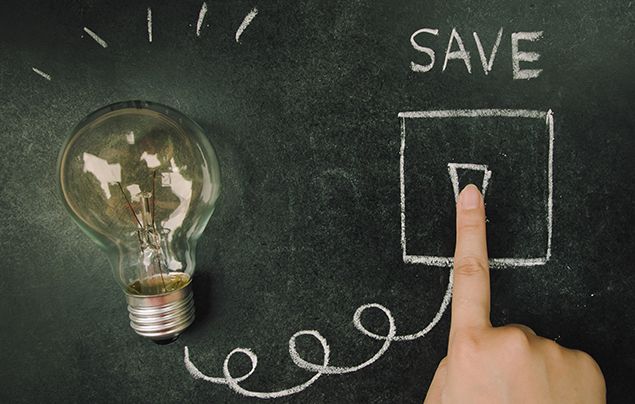
Most people’s homes still rely on energy from fossil fuels – a power source which contributes towards climate change. An easy way to help is to reduce the amount of power your family uses, where you can.
How about leaving some reminders around the house to make sure everyone switches things off when they’re not using them? You could design labels or posters to go above switches. Here are some examples of things you could write on your labels, but you could come up with your own wording:
– Hey! Have you switched off the lights?
– Save energy and switch off the lights!
– Save the planet, switch off!
– Last person out please switch off the lights 🙂
3. Put planet‐positive posters in your window
One of the best things you can do to help care for the planet, is by inspiring others to do the same! To help spread the message during this period of social distancing, why not create a poster and display it in your window? That way, neighbours, delivery drivers and anyone else passing by your house will discover why you love the planet and might feel inspired to care, too.
There are lots of things you could draw to represent our wonderful world – how about drawing a globe with a simple slogan like, ‘There is no planet B’, or downloading our pre-made poster, here. Or drawing a polluted ocean with the words, ‘There’s a commotion in the ocean.’ You could even include some tips for how people can help.
4. Grow your own greens!
Growing your own vegetables is really rewarding – not to mention, tasty! Plus, it’s a great way to see nature in action. What’s better, lots of the foods we eat in the UK can be easily re-grown from food scraps, so you’ll be cutting down on food waste, too! Two of the easiest things to grow from offcuts are lettuce and celery.
Next time you’re using these veggies at home ask a parent or guardian to keep the ends. Pop the root ends in a glass or small dish filled with a little water and leave in a sunny spot. You’ll soon notice roots beginning to sprout and new leaves growing. If you’re able to, plant them in soil and watch them continue to grow! Don’t worry if you don’t have any soil, they will also continue to grow in water.
Here’s a handy list of vegetables that you can easily grow from scraps!
5. Start a petition
Petitions are a great way to gather people’s support about an issue you care about. People show their support by adding their signature. You can set up petitions online, just make sure you get a parent or guardian to help. Petitions can be about anything, like the environment, human rights or animal welfare. Some petitions, which get lots of signatures, can be picked up by newspapers or politicians and can start the spark for change in your local area or even across the whole country!
Here are some things to think about when starting a petition:
– Think of a short, catchy headline that will encourage people to read the rest of your petition.
– Choose a ‘decision maker’ – this will be the main person or company that can help you solve your problem. For example, the local mayor or a big business.
– Tell your story – explain why you’re passionate about the issue and why people should support your petition.
6. Get green fingered!
Plants and trees absorb carbon dioxide – a greenhouse gas that contributes towards climate change – making our air cleaner in our homes and cities. We can each do our bit by looking after plants and trees where we live. Why not ask someone in your family if they have a plant you could ‘adopt’, or if a parent or guardian is going to the supermarket, they might be able to pick one up for you to care for.
You’ll need to research the best way to care for your particular plant, to learn how much sunlight and water it needs. An easy way to grow plants is in a mini-greenhouse, called a terrarium. Make your own with our jungle in a bowl craft!
7. Collect rainwater
To help look after the planet’s natural resources, we all need to do more to use less of them, where possible. You can help save water by collecting rainwater to water your plants! Simply line up old bottles, jugs or bowls on windowsills, or in your garden, if you have one.
8. Create a mini nature reserve
They may only be tiny, but bugs play a hugely important role in the environment. They help us break down waste, spread fruit seeds to grow new plants, and provide a food source for lots of other, larger animals.
Bees are particularly important as they pollinate almost a third of the food we eat – this means they help other plants grow. Without this pollination, many of our fruit and veggies wouldn’t grow. To help make a safe space for our stripy friends, why not create a little bee hotel with our easy instructions?
If you have a garden, you could also create a butterfly sanctuary by planting a few of their favourite plants – they like strong smelling ones like lavender and flowering mint. Alternatively, rustle up a toad house by cutting a little ‘door’ in a plant pot, turning it upside down and nestling it into mud. Weigh the top down with a rock so it doesn’t blow away!
9. Write to your local MP
Your local Member of Parliament, also known as an MP, is the person who represents all the people that live in your local area at Parliament – where the laws of this country are made. Anyone can write to their local MP to let them know about issues they care about. Your MP may then bring the issue to the attention of other MPs when they meet in Parliament.
You can write to your MP by post or email – ask a parent or guardian to find out their office or email address. Your MP will always try to reply to you, so you should include a return address or email address if you send a letter. If you don’t hear back from them within a couple of weeks, ask a parent or guardian to give their office a call, to check they received your letter/email.
We’ve put together a template so you know what to include.
Here are some things that you might ask your MP to support:
– A grant for your school to develop its eco-committee
– Better recycling facilities
– Investment in renewable energy (like solar or wind power)
– A ban on plastic takeaway packaging
– More green spaces in your area
10. Compost
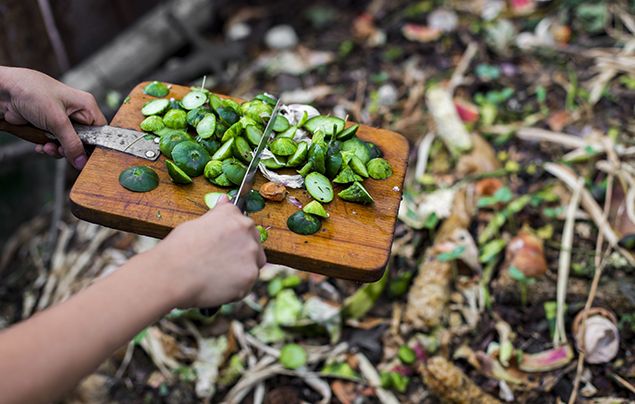
Up to 40% of what ends up in landfill is compostable, so if your family doesn’t already compost, now’s the perfect time to start! Composting recycles food waste, which can be used as fertiliser on soil. Lots of councils will deliver food waste bins, so you could ask a parent or guardian to request one from your local authority.
If your council doesn’t yet process food waste, you can make your own compost heap. Simply gather all of your food scraps – like apple cores, potato peelings and eggshells – in a bowl or waste basket each day and then transfer to an outside food bin or bucket. Remember to cover the bin or bucket over to keep cheeky animals out!
Just imagine if everyone made just a few simple swaps to their day-to-day lives – collectively it would make a huge positive difference to the environment!
Have you tried any of the above ideas? Let us know by leaving a comment, below!
More Like

Plastic-free presents you can make at home!

Funny Kid Slapstick!

World War 1 facts
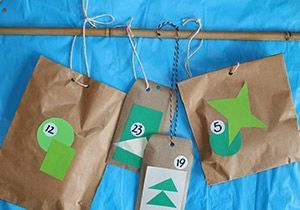




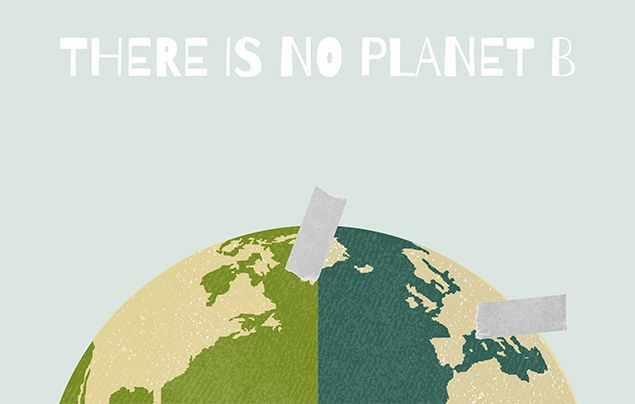
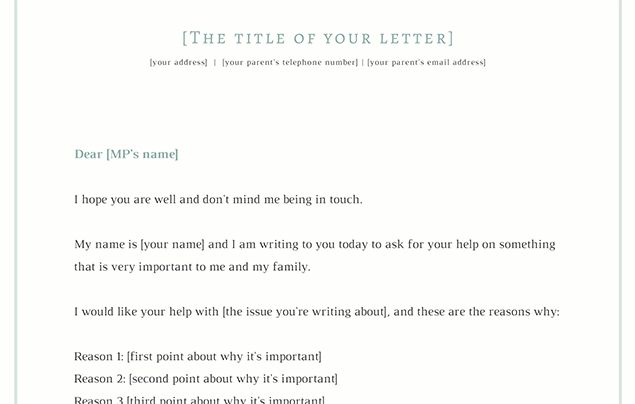




LEAVE A COMMENT
THANK YOU
Your comment will be checked and approved shortly.
WELL DONE,
YOUR COMMENT
HAS BEEN ADDED!
COMMENTS
CUSTOMIZE YOUR AVATAR